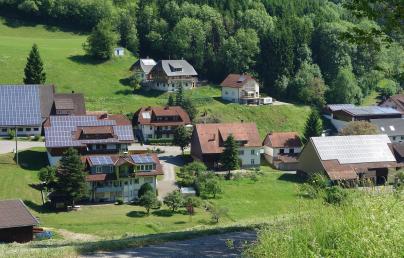Building expertise: Academy offers building training and resources for updated EPBD

Building expertise: Academy offers building training and resources for updated EPBD
According to the European Commission, buildings are the single largest energy consumer in Europe. The building sector is therefore crucial to achieving the EU's energy and climate goals. Almost half of the world's final energy consumption goes to heating buildings and energy communities, so connecting our homes and offices is one of the first steps to reduce high energy use.
To boost the energy performance of buildings, the EU has established a legislative framework that includes the Energy Performance of Buildings Directive and the Energy Efficiency Directive Both were revised in 2023, aiming to achieve a fully decarbonised building stock by 2050.
Many studies like one published in MDPI enhance the belief in the industry that optimising a building’s energy performance requires an integrated design approach and cross-disciplinary teamwork, while satisfying the occupants' needs. The paper concludes that “there is now a substantial need for professionals such as architects and engineers specifically trained and educated in integrated design approach and trained to work in cross-disciplinary teams.”
Developing and operating energy-efficient buildings is complex; it requires the combined effort of designers, qualified architects, engineers, installers, and builders to deliver the building as designed and commissioned. Building operators then need to maintain the building’s full energy performance.
The need of continuous training for construction professionals
The EPBD and the EU Energy Efficiency Plan 2011 both underline the importance of the continuous training of such professional experts for their successful implementation. “It's not only a matter of making certificates - it's achieving this goal of increasing the rate of building renovation in Europe. Ι think that there are many different responsibilities, many different roles at the national and local level,” says Leandro Madrazo, Professor at the La Salle School of Architecture, Ramon Llull University in Barcelona.
Currently, European regulations impose an Energy Performance Certificate (EPC) that every building available for sale or rent must have, stating how efficient the building is in terms of its energy performance. However current certificates are insufficient in terms of the actual performance of a building. They do not show for example the interrelation of efficiency of the building equipment and of the behaviour of the occupants or give information about the building's capabilities to host renewable energy generation and distribution to the grid.
Due to these and other limitations “it's important that the current certificates become an instrument tool for renovating the building stock,” said Prof. Madrazo.
To improve existing energy certification processes, a group of architects, engineers and policymakers in six European countries are joining forces now in the EU research project TIMEPAC, sharing the vision to move from single, static certification to one that’s more holistic and dynamic.
According to Prof. Madrazo the project helps to move from a one-time certification of the building, to a continuous assessment over time. That means using multiple data sources, combining these data, and involving more stakeholders in all the process. “Building assessment is no longer a one-off task, but an on-going process that continues throughout the building’s lifetime” he said.
This will fit in with implementing the current energy efficiency assessment process associated with the reform of EU Energy Performance of Buildings Directive.
The TIMEPAC Academy
The project recently launched its own TIMEPAC academy to offer building experts the essential knowledge and skills needed to move from one-time certifications to comprehensive assessments of a building’s performance throughout its lifespan.
By introducing a dynamic approach to certification, the team hopes to give building owners the tools and incentives to become more energy-efficient. Prof. Madrazo says the original idea for the TIMEPAC Academy was a series of courses and webinars in to transmit their vision. “Now we realize that maybe we should expand this idea. It's not only about training, but it's also about creating a space of exchange of knowledge about what it means to build in certification in the future, particularly after the new EPBD.”


